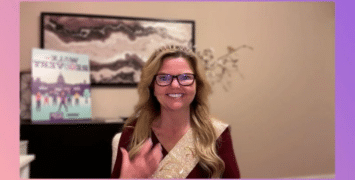Your cart is currently empty!

Monday Thoughts 6/22/2020

“The difficulty we have in accepting responsibility for our behavior lies in the desire to avoid the pain of the consequences of that behavior.” ~~M. Scott Peck
“Being more aware creates responsibility. What does responsibility mean? It means the ability to respond. The more conscious you are in your ability to respond, the more creative you’ll be.” ~~Deepak Chopra
“In the long run, we shape our lives, and we shape ourselves. The process never ends until we die. And the choices we make are ultimately our own responsibility.” ~~Eleanor Roosevelt
______________________________
#13 I am responsible for myself and for my actions.
I am in charge of my mind, my thoughts and my life.
______________________________
Many of us are still riding the wonderful wave of energy from our Envision It 2020 Virtual Conference. This event was a remarkable success made possible through the responsibility of 4C women across the world, and as a nonprofit business. This yearly event could have been cancelled like so many other events, yet WFS understood the need and value and asked for your help in making this event possible. You responded with your abilities, whether it be time, talent and/or finances to make this event unfold. It is a beautiful testament of the WFS Statements in action. (Please note that replay of our Envision It 2020 Conference has been extended to June 28th! For those who registered.)
Statement #13, part of Level Six of the New Life Program, states in our WFS Program booklet, “The purpose of the New Life Program is self-acceptance and being responsible for ourselves and all that we do. By accepting responsibility, we can break away from unhealthy dependencies.” In my own life, releasing blame laid a clear path into responsibility and freedom. It took some time to understand that I was in fact, blaming others even when not stating so. It was the awareness and observations of my responses to people or events in life that revealed my efforts to blame others.
Growing into responsibility is a life-long process; we continue to evolve on our journey of sobriety and recovery. Supporting each other as we move through challenges and difficulties allows us to connect, love and respond in ever increasing ability and awareness. How do you respond with your ability today? How is this different from before your New Life?
Hugzzz
Karen
~~~~~~~~~~~~~~~~~~
Hi 4C Women,
I’ve said this over the years that I was the Queen of Blame. I wore my crown proudly because nothing was ever my responsibility. This is not to say that the actions and words of others did not wound me. However, placing blame for my entire adult life on others, left me stuck and not providing room for emotional/personal growth. There was a lot of pain growing up yet as I pulled the layers of pain away, I realized there were loving times as well. In order to be the Queen of Blame, I didn’t allow the love to come into the picture, the “all or nothing” thinking. That was my light bulb moment. If I could focus on the love as much as I did the pain, perhaps I could finally learn to take responsibility for my life in the present, my well-being, responses rather than reactions and most importantly, speaking my voice, setting boundaries. I recently read that if people respond angrily to your boundaries, it usually means they needed to be set. As a child, I did not have power. As an adult, I most certainly do. Of course, that meant change! I was resistant to change – again because that meant I would have to take responsibility for my well-being. Anger and resentment were how I justified my blaming others long after the hurt happened. I knew that in order to take responsibility, I had to accept a commitment to personal growth. Once I made that decision, I found that I was eager to change, to be in charge of my life. I even surprised myself!
I used a handout in one of my f2f meetings. It described change in 3 behavioral styles: Victim, Survivor, Navigator. I chose Navigator because it was similar to the WFS philosophy.
A Navigator:
Uses positive “self-talk
Establishes clear goals
Molds their sense of self-identity
Is proactive and works thought-out plans
Takes care of themselves
Acknowledges their fears – naming your fears rather than surrendering to vague dread, you can clarify the challenges and refute the unrealistic inaccurate fears
Navigator self-talk includes:
Reframing the situation (looking for a more positive view of situation)
Refuting self-limited statements (seek positive, accurate messages)
Avoiding “all or nothing” thinking
Praising self
Preparing for future events
This led me to questions from Karen in a previous message
Are you comfortable being in charge of your life? Why? Wny not?
Share an experience in which you used this Statement and were content with the results.
What does responsibility feel like in your New Life?
Bonded In being responsible for ourselves and our actions, Dee



